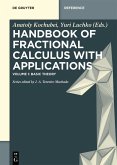Besides their intrinsic mathematical interest, geometric partial differential equations (PDEs) are ubiquitous in many scientific, engineering and industrial applications. They represent an intellectual challenge and have received a great deal of attention recently. The purpose of this volume is to provide a missing reference consisting of self-contained and comprehensive presentations. It includes basic ideas, analysis and applications of state-of-the-art fundamental algorithms for the approximation of geometric PDEs together with their impacts in a variety of fields within mathematics, science, and engineering.
- About every aspect of computational geometric PDEs is discussed in this and a companion volume. Topics in this volume include stationary and time-dependent surface PDEs for geometric flows, large deformations of nonlinearly geometric plates and rods, level set and phase field methods and applications, free boundary problems, discrete Riemannian calculus and morphing, fully nonlinear PDEs including Monge-Ampere equations, and PDE constrained optimization
- Each chapter is a complete essay at the research level but accessible to junior researchers and students. The intent is to provide a comprehensive description of algorithms and their analysis for a specific geometric PDE class, starting from basic concepts and concluding with interesting applications. Each chapter is thus useful as an introduction to a research area as well as a teaching resource, and provides numerous pointers to the literature for further reading
- The authors of each chapter are world leaders in their field of expertise and skillful writers. This book is thus meant to provide an invaluable, readable and enjoyable account of computational geometric PDEs
Dieser Download kann aus rechtlichen Gründen nur mit Rechnungsadresse in A, B, BG, CY, CZ, D, DK, EW, E, FIN, F, GR, HR, H, IRL, I, LT, L, LR, M, NL, PL, P, R, S, SLO, SK ausgeliefert werden.









